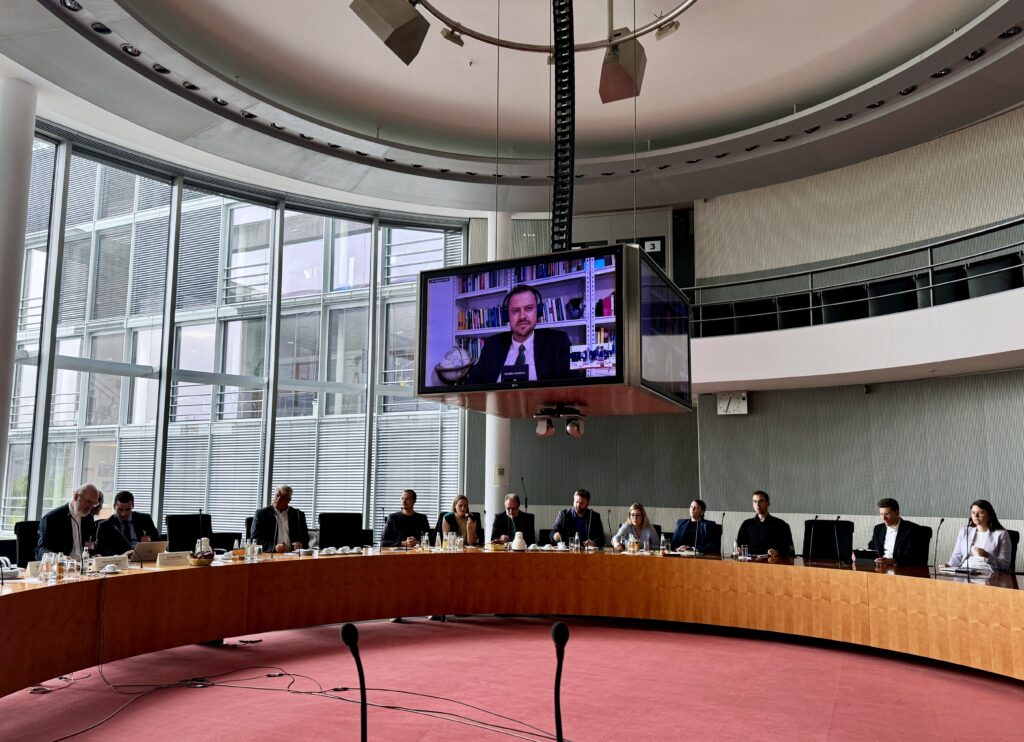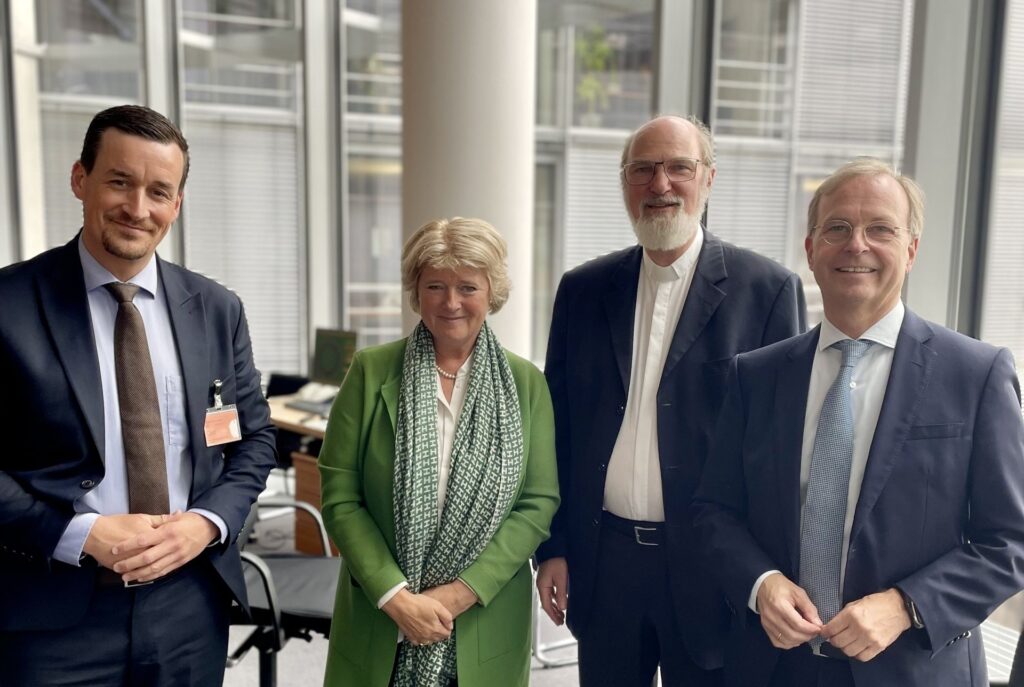
At the last gathering of the CDU/CSU parliamentary group’s “Stephanuskreis” before the summer break, Prof. Dr. Thomas Paul Schirrmacher, President of the International Institute for Religious Freedom (IIRF) and the International Director of the IIRF, Dr. Dennis P. Petri (San Jose, Costa Rica), presented a new instrument for researching global religious freedom at the initiative of the Working Group on Religious Freedom (AKREF) of the Evangelical Alliance in Germany. They also announced that a report on the situation of all religions in all countries would be produced by 2026, a kind of “World Watch List” for all religions instead of just for Christianity.
The newly developed Violent Incidents Database (VID), which will be published in 2024, will provide reliable and easily accessible facts on the violation of religious freedom worldwide. According to Prof. Monika Grütters (CDU), Chair of the “Stephanuskreis” of the CDU/CSU parliamentary group, who chaired the meeting, the VID is “the first tool on the market in the area of religious freedom that is not just based on (expert) assessments”. Rather, “as a dynamic open-source database, it provides continuously correctable and verifiable data on violations of the human right to religious freedom in all affected parts of the world”.
IIRF Director Dr. Dennis P. Petri presented his institute’s new database as a “ground-breaking tool that enriches the entire field of global religious freedom monitoring”. He reported on many examples in which the database is already being used by governments and researchers.
At the beginning of his presentation, Prof. Schirrmacher looked back on 25 years of dealing with religious freedom in the German Bundestag. “A quarter of a century ago, I was in a Bundestag committee on the subject of religious freedom for the first time. The first topical debate on religious freedom also took place in 1999, initiated by Hermann Gröhe. On that day, I received the most serious rebuke of my life when Hermann Gröhe said to me: ‘Give me the facts!’” That was the impetus for founding the International Institute for Religious Freedom, which later gave rise to the Yearbooks on Religious Freedom and the Persecution of Christians and the ‘International Journal for Religious Freedom’ (IJRF) under the direction of Prof. Christof Sauer.
At the presentation of the new database, Prof. Schirrmacher explained the differences to existing instruments – above all the well-known “World Watch List” from Open Doors.
“The VID does not sort countries according to a ranking, but endeavours to record all reported cases of religious violence and discrimination so that researchers and politicians have the opportunity to use this data.”
It also includes all major and minor religions, not just Christianity.

The meeting was attended by members of the Bundestag, their staff and interested members of the public, including the former Federal Government Commissioner for Religious Freedom, Markus Grübel, the spokesperson for churches and religions of the CDU/CSU parliamentary group in the Bundestag, Thomas Rachel, the long-standing member of the Bundestag and current chairman of the Evangelical Alliance in Germany, Frank Heinrich, and the Commissioner for Religious Freedom of the International Society for Religious Freedom, Michaela Koller.
At the end of the meeting, Schirrmacher emphasised:
“Anyone who does not take into account the fact that most people in this world are religious can only make bad policy – namely bypassing the people.”
Addressing religion and using reliable instruments such as the VID for political decision-making is therefore essential for good politics.
“It must always be made clear that religious freedom is an issue that can be researched, talked about and directly advocated for. But the most important thing is that genuine commitment to religious freedom is always a commitment to all religious and ideological people. The fact that Christians, as the largest faith group in the world, always benefit from this commitment should not be the only motivation, but it is good to know.”
The “Stephanuskreis”, named after the first Christian martyr, is an interdenominational dialogue forum of the CDU/CSU parliamentary group in the Bundestag that campaigns for religious freedom, religious tolerance and the protection of people who are discriminated against or persecuted because of their faith or ideology. On behalf of the Working Group on Religious Freedom – Human Rights – Persecuted Christians (AKREF) of the Evangelical Alliance in Germany, its director Matthias Böhning, Secretary General of the International Society for Human Rights (ISHR), thanked Prof. Monika Grütters and the members of the “Stephanuskreis” of the CDU/CSU parliamentary group in the margins of the event for the opportunity to present the VID at the level of the German Bundestag:
“This new instrument builds a bridge between science and politics and helps to advocate even more effectively for the protection of religious freedom worldwide. That’s why the ‘Stephanuskreis’ was the perfect platform to present the new Violent Incidents Database to German political circles for the first time.”